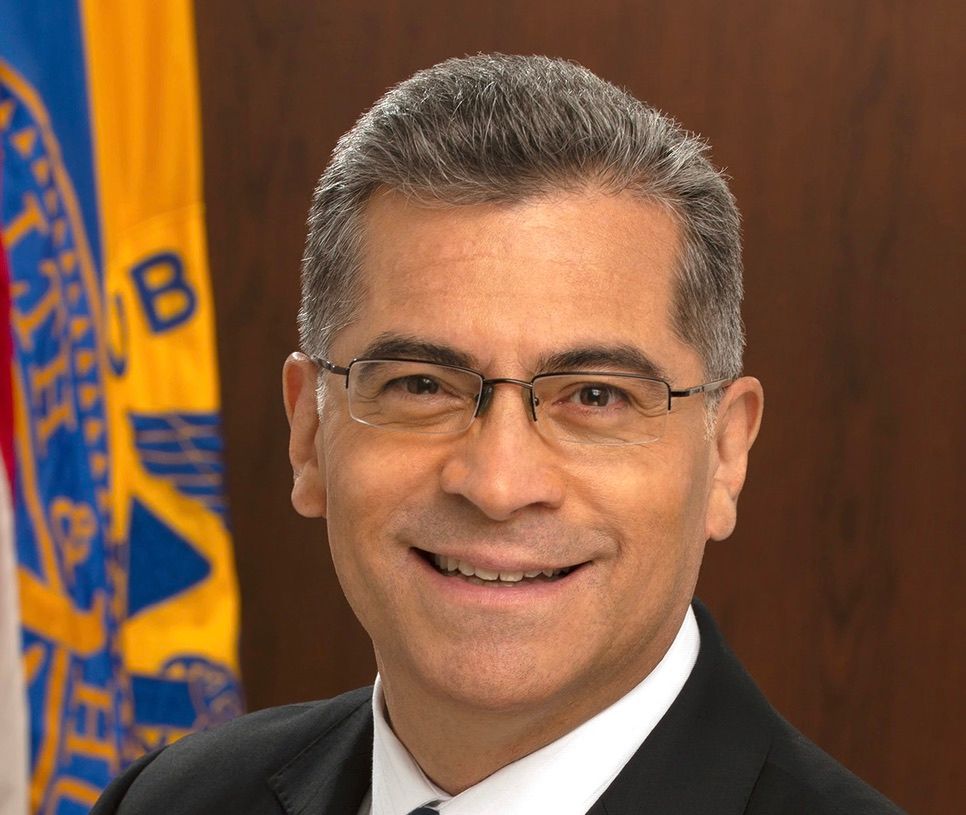- Politics
- Diversity, equity and inclusion
- Financial Decision Making
- Telehealth
- Patient Experience
- Leadership
- Point of Care Tools
- Product Solutions
- Management
- Technology
- Healthcare Transformation
- Data + Technology
- Safer Hospitals
- Business
- Providers in Practice
- Mergers and Acquisitions
- AI & Data Analytics
- Cybersecurity
- Interoperability & EHRs
- Medical Devices
- Pop Health Tech
- Precision Medicine
- Virtual Care
- Health equity
HIMSS 2022: HHS, CMS leaders talk about health equity, sharing data
U.S. Secretary of Health and Human Services Xavier Becerra and Chiquita Brooks-LaSure, head of the Centers for Medicare and Medicaid Services, stressed the importance of sharing data. They also talked about taking action against those who are blocking information.
Orlando, Florida - Top healthcare officials in President Biden’s administration stressed the importance of technology and sharing data in addressing health equity.
At the HIMSS 2022 Global Health Conference & Exhibition, U.S. Health and Human Services Secretary Xavier Becerra said Tuesday the government wants to work with providers and payers to make it easier to freely exchange data. But Becerra also said the government is going to be taking a harder line at organizations that are blocking access to information.
Becerra and Chiquita Brooks-LaSure, the administrator of the Centers for Medicare and Medicaid Services, spoke via video at the conference. Here are five key takeaways.
Xavier Becerra, U.S. Secretary of Health and Human Services

‘Enforcement’ against blockers
Becerra talked about the complaints the health and human services department has received regarding organizations barring access to patient data.
More than 75% of the complaints about information being blocked have involved healthcare providers, Becerra said.
One patient wrote about awaiting to hear about a biopsy and being told the results are available, but the patient couldn’t get the results yet, because the doctor was out of town, Becerra recounted.
“Closing this enforcement gap is an HHS priority,” Becerra said.
Becerra didn’t specify the penalties. But he said the health department will have more to share on enforcement measures later this year. When it comes to providers blocking information, the health secretary makes the decisions on penalties, he said.
Brooks-LaSure also talked about the importance of all healthcare organizations allowing equal access to data. “CMS has a significant interest in these penalties,” she said.
Equity is everything
Both Becerra and Brooks-LaSure stressed that all federal healthcare policy is centered on the idea of improving health equity.
“We’re putting equity at the center of every decision we make,” Becerra said.
Over the past year, “we’ve made extraordinary progress in advancing equity,” he said. He pointed to the development of the Trusted Exchange Framework and Common Agreement. He also cited the work with minority-serving institutions on information technology.
Chiquita Brooks-LaSure, administrator of the Centers for Medicare and Medicaid Services

Brooks-LaSure said the government is focused on closing disparities in the health of minority groups so the health system “is where it needs to be.”
“How are we promoting health equity is the first question we are asking ourselves, not the last one,” she said.
The COVID-19 pandemic exposed other shortcomings in health equity, including sharing reliable data.
“The consequences of not being able to access that information, can be devastating, even deadly,” she said.
Pushing interoperability
Both leaders stressed the importance of interoperability to allow for the easy exchange of data, so if a patient switches insurers, the patient’s information follows.
Brooks-LaSure said the federal law promoting the easier exchange of information, but said the government is looking at new regulation to help fulfill its promise.
The rule required certain payers to exchange data with other payers.
“The policy that CMS finalized did not quite hit the mark,” Brooks-LaSure said.
“Our interoperability rule wasn’t interoperable enough,” she added.
She said she will be working with stakeholders to help craft stronger regulations to enhance the sharing of data.
“Our first interoperability rule was a significant step, but it was just one step,” Brooks-LaSure said.
Easing administrative burdens
Brooks-LaSure said her agency is working with the Office of the National Coordinator for Health Information to see how processes such as prior authorization can be streamlined.
“We have taken a person-centered design approach to how we’re addressing prior authorization,” Brooks-LaSure said.
In the process of prior authorization, providers must secure approval from payers for some treatments and services. Payers have viewed it as a valuable tool to cut costs and avoid unnecessary treatments.
Providers and doctors have long complained that the prior authorization process is time-consuming and adds stress. Doctors say the process delays and hurts patient care. Medical practices have said the demands are getting worse, according to a recent survey.
The American Medical Association has been pushing for reform in the prior authorization process as well. The AMA releases an annual survey on prior authorization. In the AMA’s latest poll released in February 2022, most doctors say the process is impeding patient care.
Brooks-LaSure said she wants to see a prior authorization that works for people with less burdens.
Working together
Both Becerra and Brooks-LaSure said as the move forward, they fully intend to work with stakeholders in the healthcare industry.
“We really want stakeholders to be a part of our decision-making process,” Brooks-LaSure said.
“We want to work with you, to listen to you and learn from you,” she said.
In the end, she also said collaborating with providers, payers and other stakeholders is essential to the goal of ensuring everyone can get quality healthcare.
“We need to make sure as we’re making these incredible advances, we have to make sure we’re bringing everyone else along,” she said.
